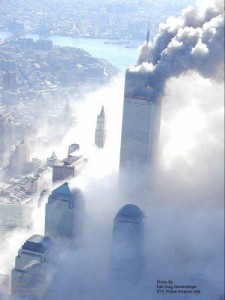 The 10th anniversary of the 9/11 attacks is an appropriate time to reflect on the price this country has paid. Some of the costs for upgraded airline security and improved data sharing among law enforcement agencies were reasonable and necessary expenditures, though some of the billions spent on screening airline passengers were dubious at best, as evidenced by the government’s recent decision to allow passengers to keep their shoes on.
The 10th anniversary of the 9/11 attacks is an appropriate time to reflect on the price this country has paid. Some of the costs for upgraded airline security and improved data sharing among law enforcement agencies were reasonable and necessary expenditures, though some of the billions spent on screening airline passengers were dubious at best, as evidenced by the government’s recent decision to allow passengers to keep their shoes on.
Other measures such as illegal wire-tapping of innocent Americans, torture –– euphemistically referred to as “enhanced interrogation”–– and two protracted wars that have resulted in the deaths of some 6,000 American soldiers and more than 100,000 civilians in Afghanistan, Iraq and Pakistan, were more the result of fear than necessity.
While we have weakened Al-Qaida by killing Osama Bin Laden and many of its leaders, these deaths were primarily the result of targeted attacks using SEAL teams and unmanned Drones rather than invading armies.
The cost of these wars has been estimated to be $4 trillion dollars, in addition to the hundreds of billions spent on homeland security. We’re also facing billions more in medical and psychological costs to treat soldiers suffering from the physical and emotional damages of war, as witnessed by the incredibly high suicide rate for soldiers returning from the battlefield.
Since that fateful September day, we’ve experienced two recessions, including the deepest one since the Great Depression, and seem to be on the verge of a third. Instead of paying for the wars, taxes were cut, and the Treasury lost an estimated $1.3 trillion in lost revenue over 10 years. The budge surplus became a huge deficit, and the total federal debt nearly doubled to $10 by 2008. Today it’s almost $15 trillion. The U.S. government now owes three times more than it did in 2001.
Unemployment is high, U.S. households are deeply in debt, and Americans have lost billions in the stock market, in the value of their homes and in their net worth. The country and its two main parties are divided along ideological lines, and Congress is as toxic as nuclear waste.
Wall Street and the banking industry––instead of working to help the country––responded with an unbelievable gluttony of greed and exotic financial products like derivatives that can be bundled and resold throughout the world, even though many were worthless.
Osama Bin Laden believed he could bankrupt America and bring it to its knees in much the same way as he and the Mujahideen bankrupted the Soviet Union. Bin Laden’s weapon of choice for America was fear.
He has yet to be proven wrong.
